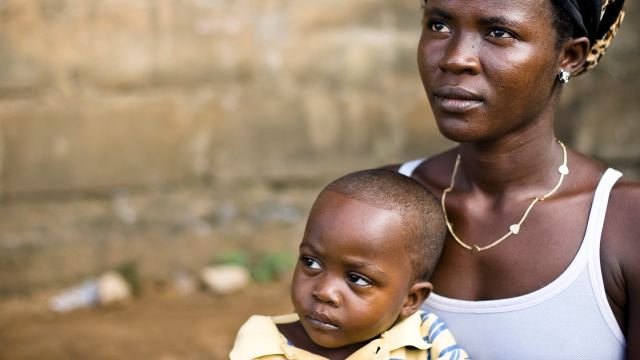In an historic first, the World Health Organization (WHO) is recommending widespread use of a malaria vaccine for children living in areas heavily affected by the disease. Predicted to save many lives, the move represents a public-health breakthrough against a disease that has long ravaged large swathes of the planet.
A pilot study in Ghana, Kenya, and Malawi saw 800,000 children vaccinated with at least one dose of the four-dose vaccine series. Over two years, the program reduced hospitalizations from severe malaria by 30 percent. In addition, a trial in Mali and Burkina Faso found vaccination cut severe malaria cases by 70 percent in children who were also taking preventive medications.
These encouraging results led the WHO’s global advisory bodies for immunization and for malaria to advise the WHO to call for routine vaccinations—including in sub-Saharan Africa, where some 260,000 children younger than 5-years old die of the disease each year. The success of this vaccine is all the more significant because progress against the disease has stalled in recent years.
In an October 6 press conference, WHO director-general, Tedros Adhanom Ghebreyesus called the vaccine a “gift to the world” and said it changes the course of public health history. “Using this vaccine in addition to existing tools to prevent malaria could save tens of thousands of young lives each year," he added.
A persistent killer
Malaria is caused by any of four species of parasites which gain entry to the bloodstream via the bite of a mosquito. In routine cases, the disease causes fever, chills, pain, vomiting, fatigue and malaise that can recur over and over. Severe cases can cause coma, seizures, respiratory distress, shock, and death. Though eliminated from many parts of the world, malaria continues to occur in more than 100 countries, with about half the world’s population at risk.
In 2017, some 219 million people developed malaria, and 435,000 died. Young children account for nearly two-thirds of malaria deaths.
"For centuries, malaria has stalked sub-Saharan Africa, causing immense personal suffering,” said Dr. Matshidiso Moeti, WHO Regional Director for Africa in an October 6 statement. “We have long hoped for an effective malaria vaccine and now for the first time ever, we have such a vaccine recommended for widespread use. Today’s recommendation offers a glimmer of hope for the continent which shoulders the heaviest burden of the disease and we expect many more African children to be protected from malaria and grow into healthy adults.”
A milestone decades in the making
The vaccine used in the pilot study, called RTS,S/AS01, has been in development since 1984. It is the world’s most advanced to date and the only one to have made it to late-stage clinical trials. When given in four doses for children at least 5-months old, it offers some protection against Africa’s most common, and the deadliest malaria parasite, Plasmodium falciparum.
The search for a malaria vaccine has long been considered one of the world’s top public-health goals and has proven extraordinarily difficult. The malaria parasite is a complex organism with many life stages and a remarkable ability to slip past the immune system.
A phase 3 study conducted from 2009 to 2014 established that the RTS,S/AS01 vaccine was effective, in preventing 39 percent of malaria cases in fully vaccinated children between the ages of 5 and 17-months old, and 29 percent of severe malaria cases. Its use cut hospital admissions for malaria and severe anemia (a frequent consequence of malaria), and it also reduced the need for blood transfusions due to the disease.
The recent pilot study found that vaccination with RTS,S/AS01 was feasible as a part of routine immunization programs, including during the COVID-19 pandemic. Its use led to a reduction in deadly severe malaria rates by 30 percent—even in areas where bednets are already in wide use and people have good access to medical care. It also reduced a major health inequity by reaching two-thirds of children who are not sleeping under a bednet. With 2.3 million doses administered so far, the safety profile has been strong. In addition, the vaccine was highly cost-effective, the pilot found.
Vaccination should be used as part of a comprehensive control program, experts said, alongside other malaria-control tools such as seasonal preventive medications, indoor insecticide spraying, insecticide-treated bednets to prevent mosquito bites, and access to testing and treatment.
The global health community is now weighing how to fund a broader rollout of malaria vaccination, while individual countries affected by the disease will decide whether or how to work it into their own prevention programs.







